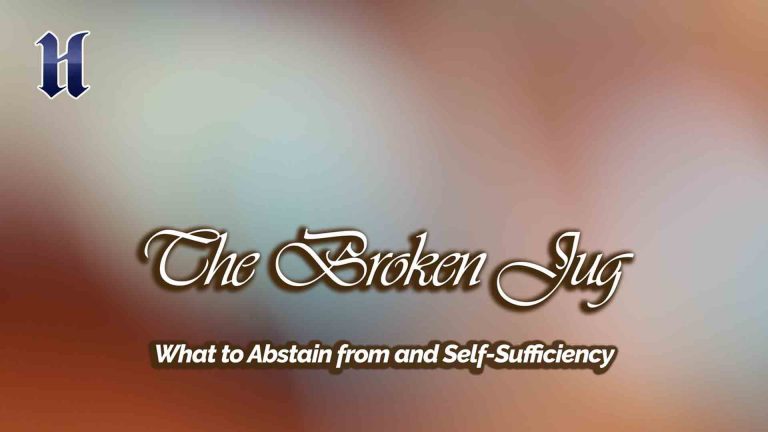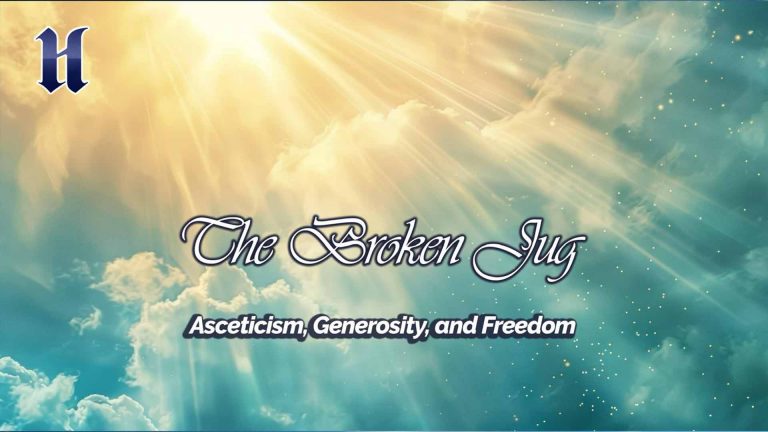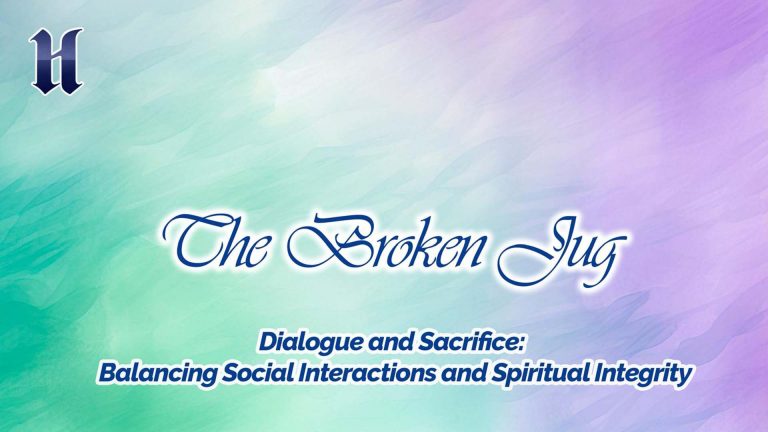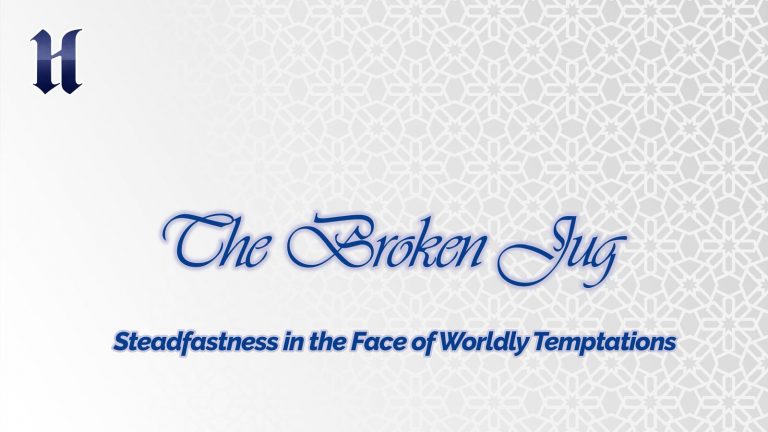Question: What are the greatest obstacles faced by the volunteers who wish to share with others the inspirations of their souls and the beauties of the values in which they believe?
Answer: Worldly desires and wishes are the greatest components for a human’s trial in this world. In societies where these components have seized individuals’ feelings and thoughts, the consequences have been many cases of oppression and suffering. Many people on the path of truth faced relentless and faithless attacks, various kinds of insults and slanders, and even assassinations and massacres; the Prophets, peace be upon them, are prime examples of this.
The first heart-rending incident took place in Prophet Adam’s home, one blessed with showers of revelation. Although he was raised in such an atmosphere, Cain murdered his brother Abel for the sake of his worldly desires.[1] Thus, the first story began with Satan’s deception and an unending chain of deceptions followed.
According to old scriptures, Prophet David’s once downtrodden people, whom he saved from disgrace and guided to dignity (with God’s permission and grace), slandered him with adultery and murder, terrible sins even ordinary believers do not easily commit. His people forced him to swear by placing his hand on the Holy Ark and put him in a difficult situation. The Pride of Humanity faced his enemies’ slanders—such as being, may God forbid a hundred thousand times, a magician and soothsayer[2]—by means of which they tried to prevent the truths he told to reach hearts.
Do Not Destroy the Eternal In This World!
Similar things can happen today as well—and they will not cease to exist in the future either. It is important not to express our troubles and hand future generations a heritage of complaints. What really matters is meeting all that befalls us with resignation and not complaining about it to people; we can open up to God when places and times provide us with due privacy, but must not let anyone know about this lamentation. The sole owner of time and space is God Almighty, and to Him belongs the final decree. Interfering with the result is not of our business. It is necessary to act with the following understanding:
Troubles sent by His Majesty, or graces from Divine mercy,
My soul welcomes them equally; Your favors and troubles all are lovely. (Ibrahim Tannuri).
If we live with this understand, we will meet His decrees about us with appreciation.
There can be troubles from His Majesty or graces from His mercy; one must welcome them both and neither feel joyful with favors nor complain about troubles. One must not say, “What did I do that these befell me? Why do I always come up against all these sufferings, troubles, gossip, and envy?” Muhammed Lütfi of Alvar puts it beautifully, in one of his pearls of wisdom, which are brighter than actual pearls:
A lover of God talks of those who hurt;
Says, do not be hurt by those who hurt;
For the one who is hurt lacks perfection;
In comparison to the one who hurts.
If you really expect to be rewarded with some perfection in the next world, it is a sign of lacking perfection to expect perfection in terms of worldly things here. Desires like expecting applause and flattering remarks from people means going bankrupt; this is a lost investment in terms of the Hereafter. The Qur’an warns us on this issue and states, “You consumed in your worldly life your (share of) pure, wholesome things, and enjoyed them fully (without considering the due of the Hereafter, and so have taken in the world the reward of all your good deeds)” (al-Ahqaf 46:20). Therefore, one must leave to the next world all Divine favors to be enjoyed, and not consume in this world all good things God promised for the Hereafter.
The following parable conveys a meaningful lesson about this subject: The wife of a saintly person complained to her husband about their humble livelihood. She asked him to pray for them to be saved from this state. So as not to turn down his wife’s wish, that righteous person prayed about it and his prayer was accepted. All of a sudden, a golden brick appeared near them, out of nowhere. That righteous man told his wife, “Here you are. This is a brick from our would-be mansion in Paradise.” Upon this, that conscientious lady felt regret for her previous words and told her husband, “Though we are truly needy, and God willing, we will have many other bricks like this one in the Hereafter. However, I do not wish to waste in this transient realm the reward we are to receive in the eternal one. Let not a single brick of our mansion in Paradise be missing. Therefore, please pray for this brick to go back to its place.” Upon this sincere wish, that righteous person prayed again, the golden brick disappeared, and went back to its place.
The invincible power of those devoted to the truth and a lofty ideal, and who seek to have a bright future for their people again, is keeping away from worldliness, acting with a spirit of dignified contentment, and devoting themselves completely to the happiness of others. There is nothing wrong if the people who earn from trade and support the services for faith and the Qur’an seek material prosperity. However, the devoted souls who are in a position of representing their values must take a clear stance against worldliness and always act with dignified contentment against it; this is their greatest credit. As they behave with genuine indifference to worldliness, people will listen to their words attentively, welcome every matter they point out, and fulfill the duties they are supposed to do without the least hesitation.
While this is what should have been, unfortunately it seems that there is a considerable number of people who set forth with a spirit of devotion, then inclined to the world by initially saying that a bit of enjoyment will bring no harm; this led to deeper indulges, and they could not manage to straighten afterwards, and finally lost against worldliness. In the words of Muhammed Lütfi Effendi:
So many elegant youthful ones,
So many rosy-faced sultans,
So many khans like Chosroes,
and so many bearers of crowns…
These people came one by one—and they unfortunately perished one by one. If the devoted souls are ever taken by these devilish considerations and say, “Let me also earn and live like them; let me also have a house and fortune…” this will mean ruining their credit with their own hands. Divine destiny issues a decree for their losing the blessings in their hands; they will slip and fall. Then God Almighty will remove from the scene those lifeless ones who entirely lost their spirit; and as the Qur’an states, God brings a fresh group of people who are not weary, and have never been dazzled by the world.[3]
The Way to Bring Haughty Ones to Their Knees
The esteem and honor of devotedness must be protected against all odds. Like in every other virtue, the Pride of Humanity is the prime devoted one who represents the peak of this virtue. When he died and passed to the horizons of his spirit, his armor was held in pawn by a Jewish merchant, which he had given in return for an amount of barley he had taken in order to treat his guests. After his demise, Muslims realized the situation and they took back the armor from pawn.[4]
The first caliph Abu Bakr followed in his footsteps; he had left an earthen jar to be handed to the next caliph after him. After he passed away, the trust was handed to the second caliph, Umar ibn al-Khattab. When they broke the jar with curiosity, the contents turned out to be the bits of money that remained after meeting the needs of his family, and a note. The note read: “The money you allocated for me was more than necessary some days. I felt ashamed against God to spend it, for it belongs to the people and should go back to the state treasury.” This message by the blessed Abu Bakr moved Umar ibn al-Khattab, who said with tearful eyes, “May God have mercy on Abu Bakr! He left such a difficult example to follow for those who remained behind.”[5]
Umar continued his caliphate with the same understanding. He never had a throne; he always sat in the mosque and carried out his tasks from there. He did not claim to be representing the dignity of the state as a pretext for leading a life of luxury, lavishness, and pomp. On the contrary, he brought the world powers of the time into line with his modest conditions. When they were going to take over the keys of the Al-Aqsa Mosque in Jerusalem, the leaders met him in sumptuous clothes, but he rode the same mount with his slave (in turns), came with his patched clothes, and his general air was modest.[6] As it is also plainly understood from this, the way to bring down the conceited ones of the time is effacement and modesty. This state and attitude will bury all types of conceitedness. This was the understanding of Umar ibn al-Khattab. He never cherished a thought like, “let me leave some worldly wealth for my children and grandchildren…” He entrusted his children to the faithful understanding of the blessed Companions and passed to the other world thus.
The third caliph, Uthman ibn al-Affan, was very rich. He was engaged in trade. However, he forsook the world in his heart, even if he did not necessarily forsake earning, as Bediüzzaman put it in The Seedbed of the Light.[7] As a matter of fact, when Muslims were asked to donate to equip the army to meet the advancing Byzantine army in Tabuk, he donated hundreds of camels, together with their loads, without having the least bit of regret in his heart and purely for the sake of God’s good pleasure.[8] Had the Messenger of God, peace and blessings be upon him, told him that he was supposed to give everything he had, he would no doubt have done so without any hesitation.
The life of the fourth caliph Ali was no different. He ruled a vast territory, one that was larger than Europe. The area of the lands he ruled, in spite of some political rivalries and strife, was large enough as to contain the Persian and Roman empires of the time. On the other hand, caliph Ali used to wear summer clothes during winter, causing him to tremble, and winter clothes during summer, causing him to sweat. When asked about the reason, he answered, “This is what I can afford with my own means.”[9]
If This Is Islam, Then Where Are We?
Some claim today that “We are also on the path of the Righteous Caliphs,” but spend their lives in luxurious mansions in summer and winter, try to secure a fortune for their children and grandchildren, and thus misappropriate state money. It is necessary to ask them, “Who is your example? Is not a believer supposed to totally keep away from such thoughts, which normally belong to greedy pharaohs, and feel ashamed before God?”
It is my wish from God Almighty that the people devoted to a lofty ideal always retain this noble feeling of shame, that they are not taken by the temptations of this world, and that they do not let these trip them up and bring about their fall. Let them say, “We can show patience in this world, so that nothing will be missing in the next one.” They should live an understanding like the one Ziya Pasha portrayed in his couplet:
The ignorant are cruising, carefree and casual;
The enlightened are swimming, in the whirlpool of trouble.
Let the volunteers consent to suffering troubles, but not covet others’ ostentatious lives. Let them see worldly things as dirt that smear a corner of their foot. And let them pass to the next world so nobly that when they are asked in the presence of God, “What did you leave in the world?” they should be able to say, “I cannot remember anything.” The essential of our path is dignified contentment, effacement, and modesty. Other codes of conduct by the idealist souls devoted to restoring a ruined heritage will not only shake the people’s trust in them, but also cause them to lose credit in the sight of God. As seen throughout history, those who commit injustice and misappropriation will fall like Qarun (Korah) in the end, even if they appear like Prophet Aaron, peace be upon him, at the beginning.
Even if they offer a title of a great conqueror, the thought of devotedness must not be sacrificed for anything. Just as we did not possess anything when we came to this world, one must similarly pass to the next world with zero wealth; just like in the examples given above. Let those who do see those examples appreciate them; their appreciation will turn to a blessing in the Hereafter. As for those refuse to appreciate? Their non-appreciation will slam on them like a sledgehammer.
They Fear Not the Censure of Any Who Censure!
Many roses have been taken by thorns, and many nightingales have lamented this. And today, it falls to the heroes of noble ideals to lament. They meet slanders, condemnations, derision, intrigues, and plots… In the face of all these, it is necessary to act with the understanding voiced by a Sufi poet: “Neither the world welcomed us, nor did we expect from worldly ones; nor do we seek refuge in any door but God’s.”
It is necessary to present a stance of dignity. As Sadi Shirazi put it, “If a stray stone touches a golden bowl, neither the stone gains value, nor the bowl loses value at all.” Therefore, if you are a golden bowl, let them stone you; with God’s permission and grace, nobody will be able to harm you.
The Qur’an states that steadfast believers do not fear the censure of any who censure (al-Maedah 5:54), and shows us the attitude to be taken in such situations. On the other hand, it is necessary to know that everything that befalls us is a trial which serves as a means for further closeness to the Eternally Beloved Creator, thanks to a perspective that sees beyond apparent causes. As a hero of such horizons, Bediüzzaman said: “I give my blessing about the torments and ordeals I have been going through for twenty-eight years. I forgive those who oppressed me, those who sent me into exile many times, those who sought to put me in prison on trumped-up charges, and those who paved the way for my imprisonment.”[10]
Journeyers on this path must say like Nasimi did:
I am a suffering lover O Beloved, I will not turn away from You.
Even if You cleave my heart through, I still will not do so.
Even if they cut me into two from head to foot like Zachariah,
Put my head to the saw O Lord, I will not turn away from You.
Even if they burn me into cinders and blow away my ashes,
They will hear my ashes sigh: ‘O Veiler (of sins), I will not abandon You.’
Without being hindered by the evil words they hear, they must focus their attention on the task they need to carry out and walk uprightly on the righteous path.
Have no doubt about it: with God’s permission and grace, they will keep serving under Divine protection and no one will be able to stop them. They must keep walking with the understanding, “Whatever it is that God ordains, it is sure to be goodness.”
[1] See: Al-Maedah 5:27–32.
[2] See: Yunus 10:2; Sad 38:4; Al-Anbiya 21:5; As-Saffat 37:86, and for soothsayer see: Al-Hakim, Al-Mustadrak, 2:550; Abdurrazzaq, Tafsir as-San’ani, 3/328.
[3] See: Al-Maedah: 5:54.
[4] Tabarani, Mujamu’l-Awsat, 8/359.
[5] Ibn Sa’d, Tabaqat al-Kubra, 3:186.
[6] Mevlana Şibli Numani, Hz. Ömer ve Devlet İdaresi, İstanbul: Kitapevi Yayınları, 1986, vol. 1, pp. 233–238.
[7] Nursi, Bediüzzaman Said, Mesnevi-i Nuriye (The Seedbed of the Light) İstanbul: Şahdamar, 2010, p. 113.
[8] Tabarani, Mu’jam al-Kabir, 18/231.
[9] Sunan Ibn Majah, Muqaddima, 11; Ahmad ibn Hanbal, Al-Musnad, 1:99.
[10] Nursi, Bediüzzaman Said, Emirdağ Lahikası (The Supplement of Emirdağ), İstanbul: Şahdamar, 2010, p. 75.
This text is the translation of “İmanın Yenilmez Gücü.”






